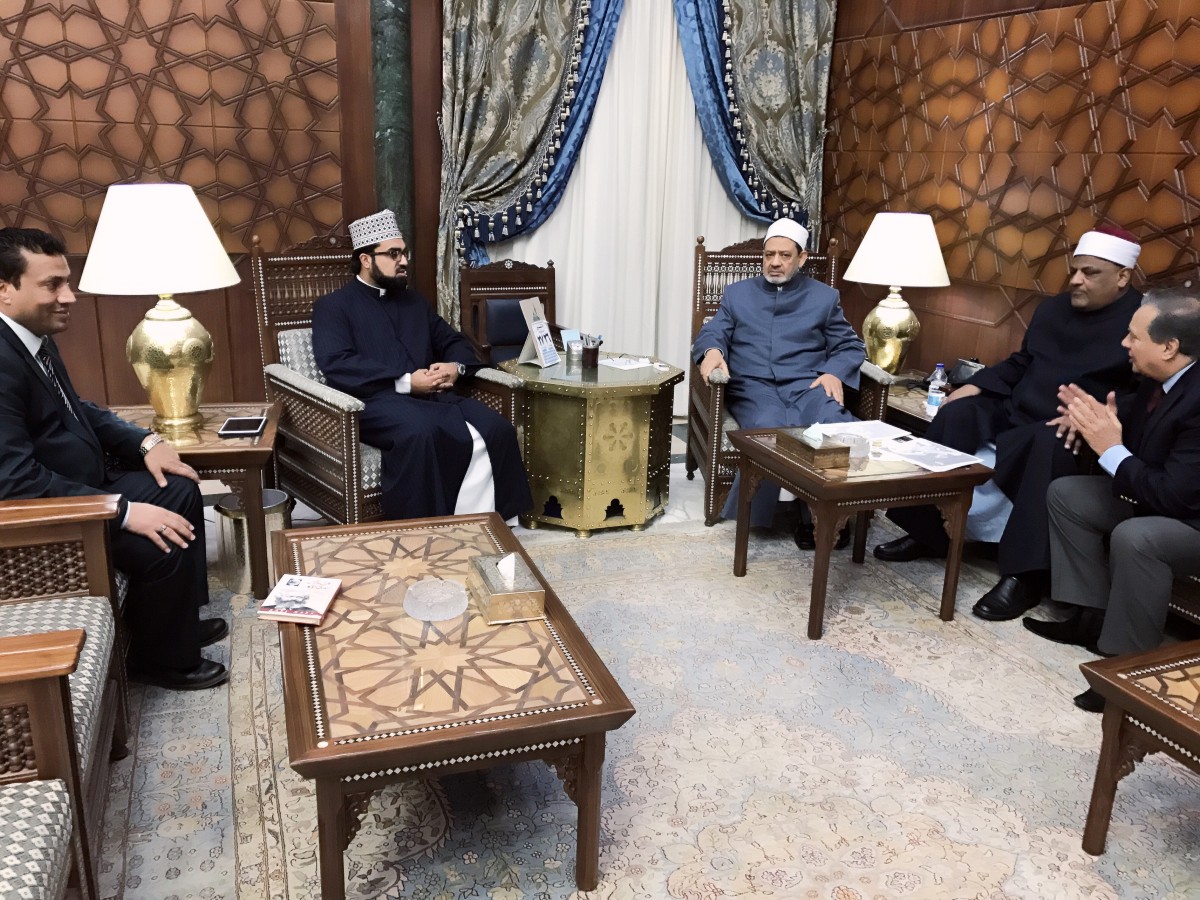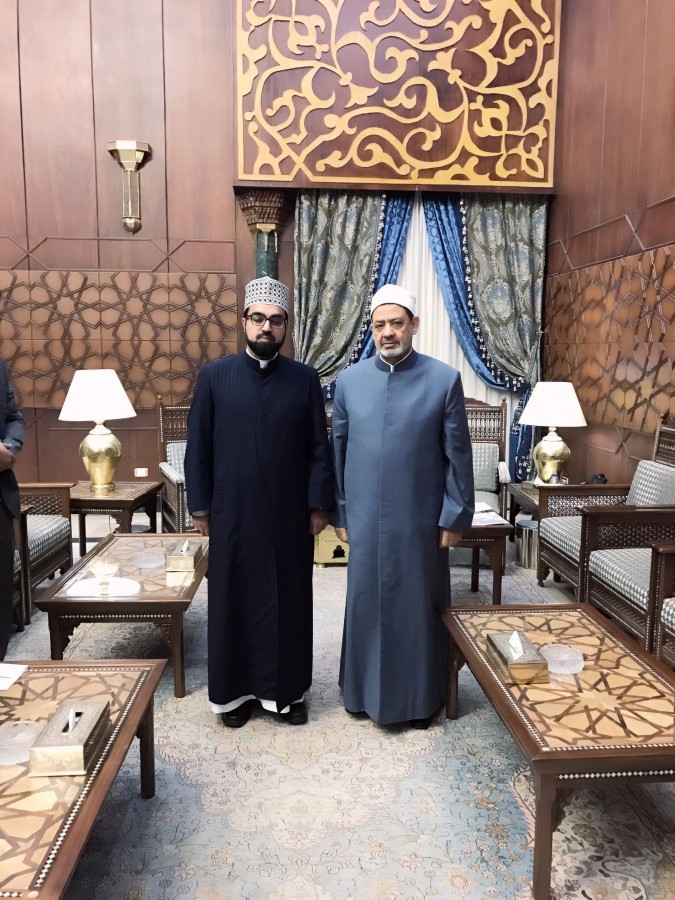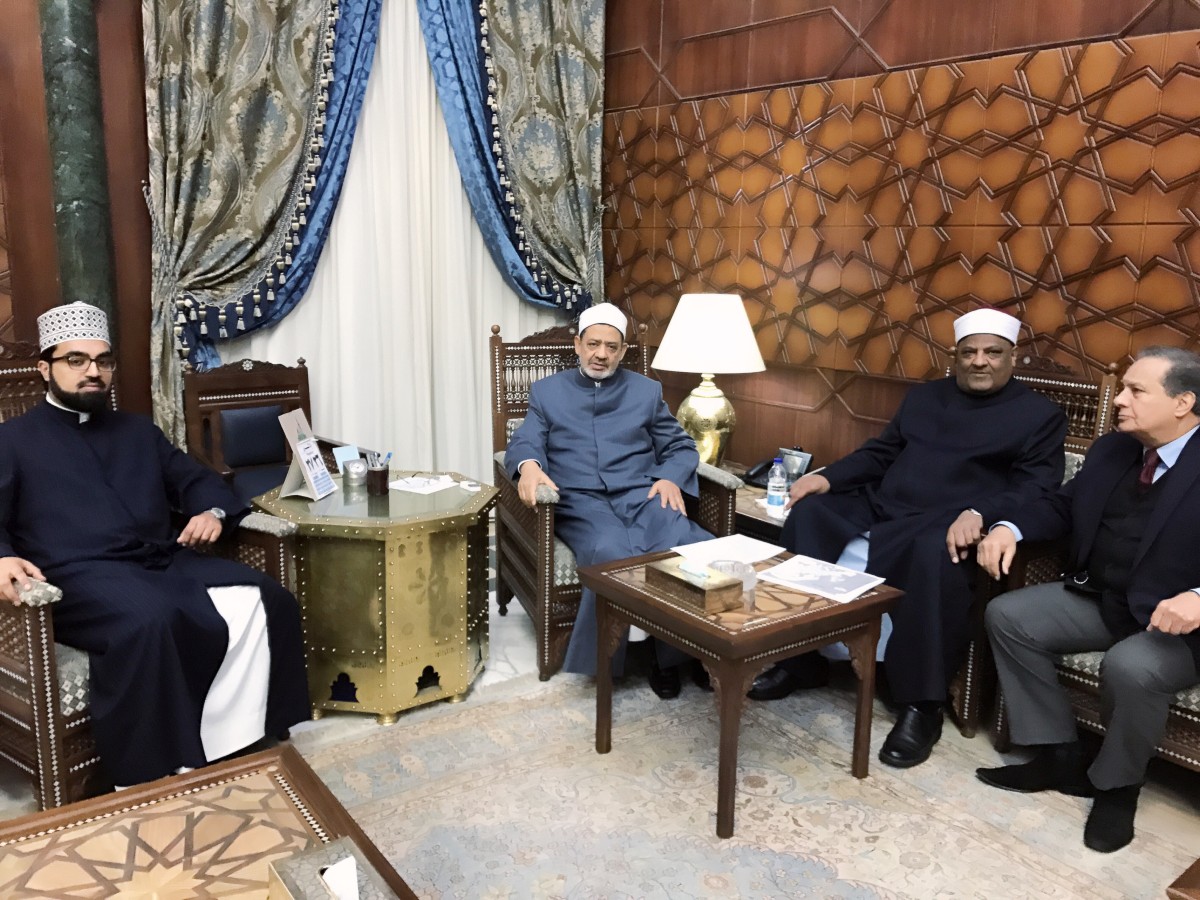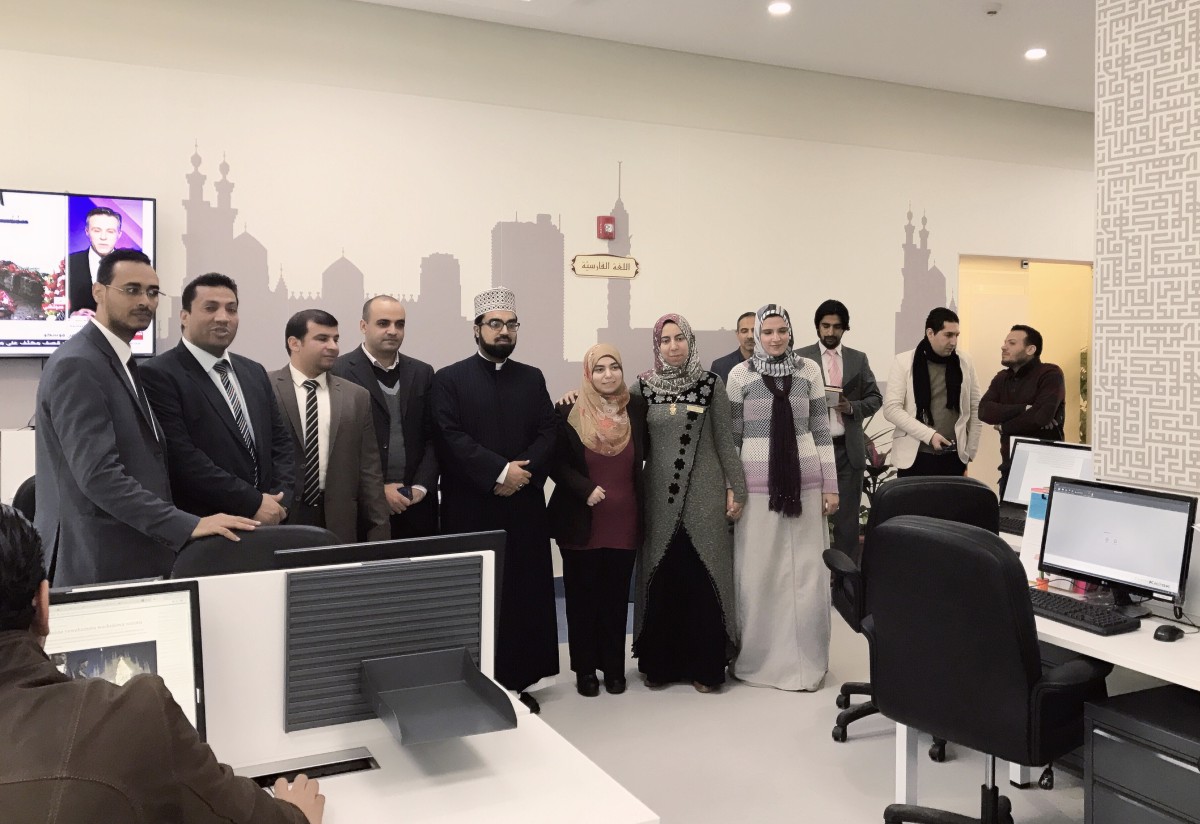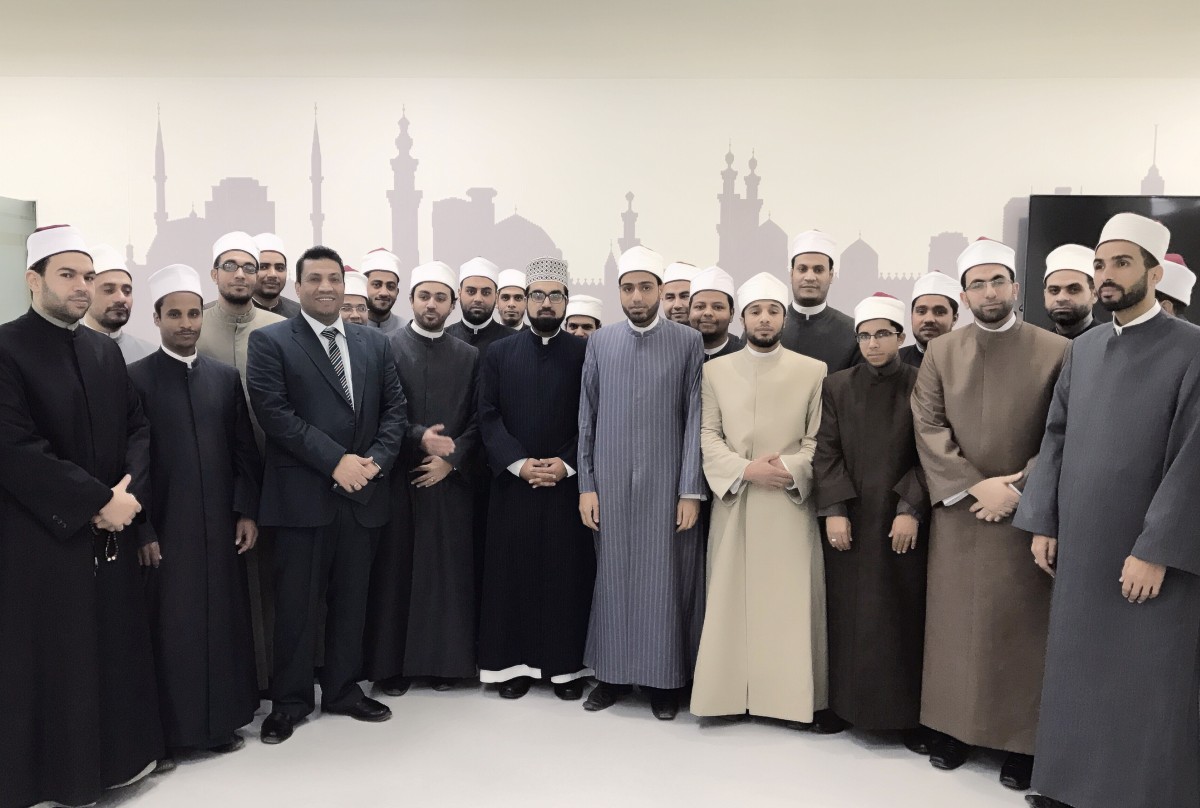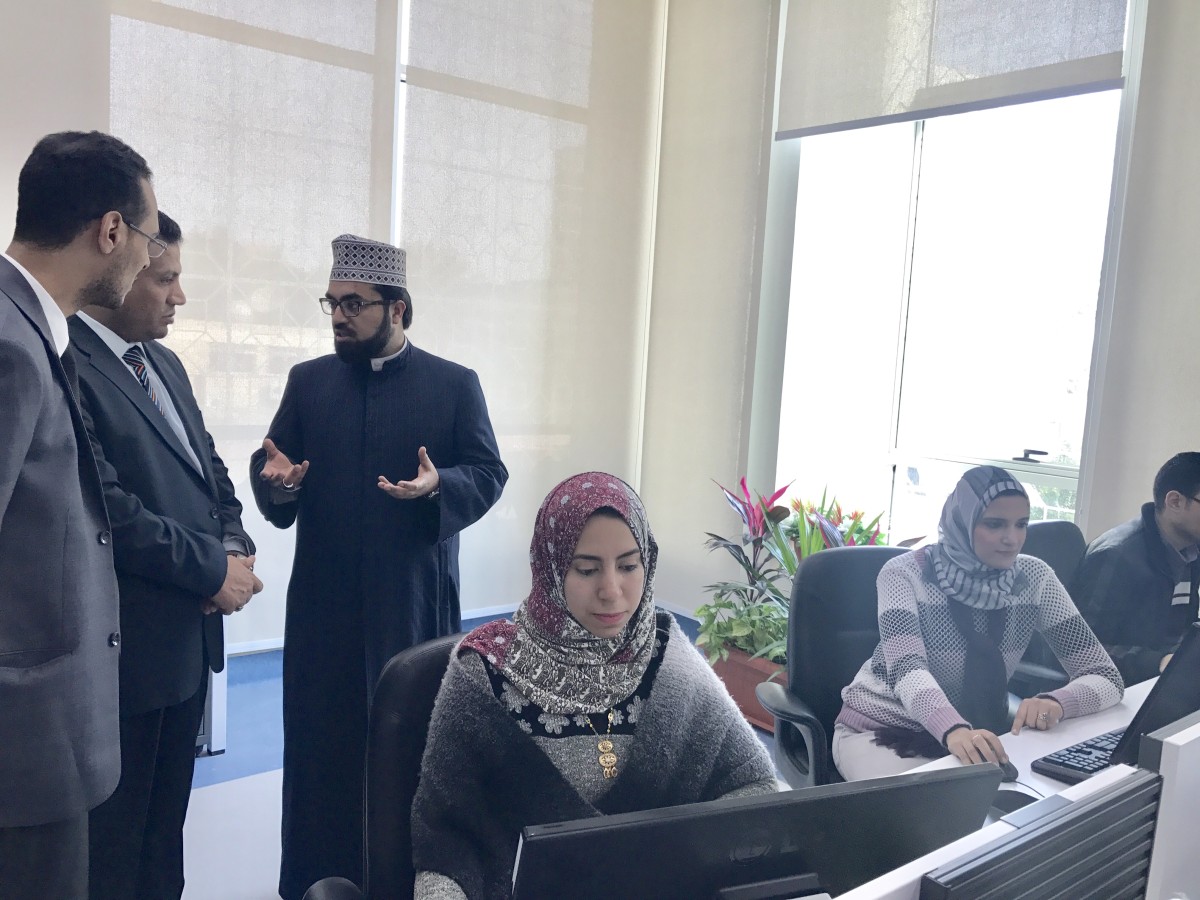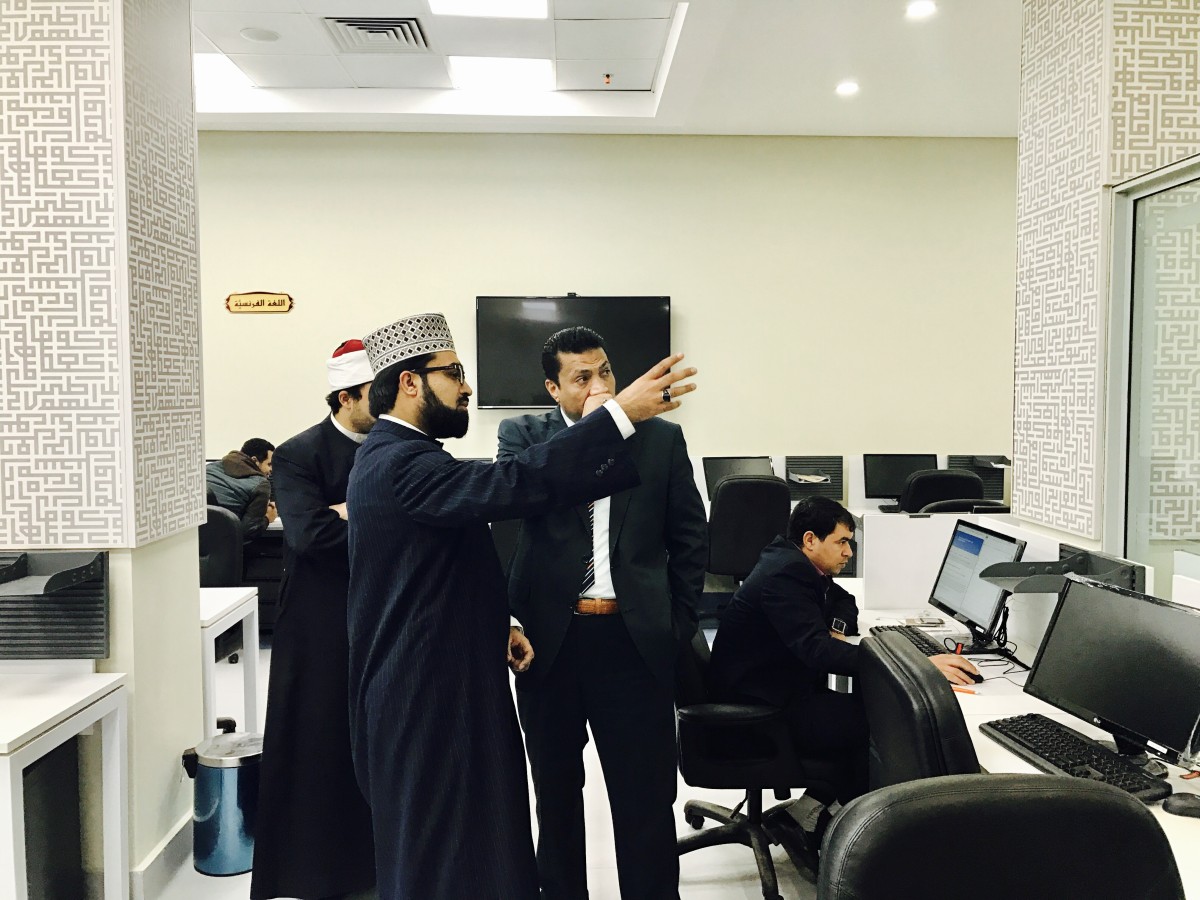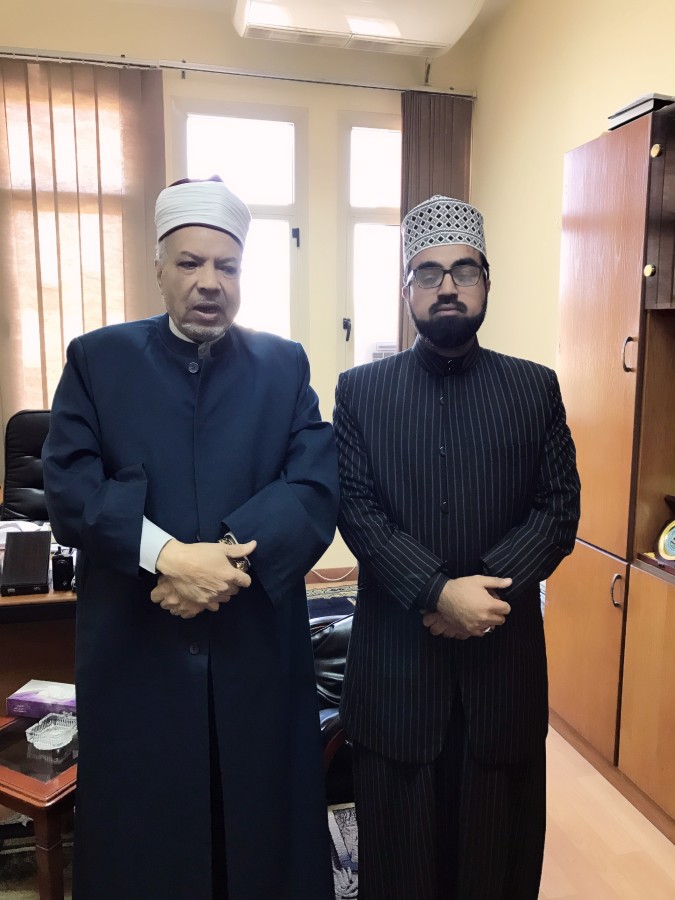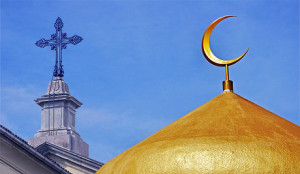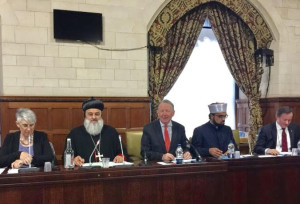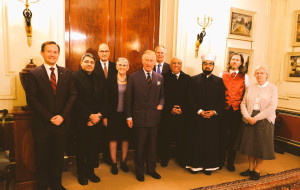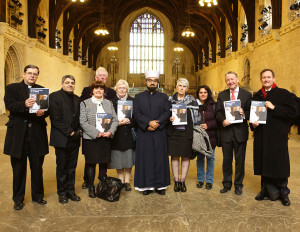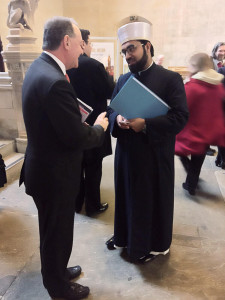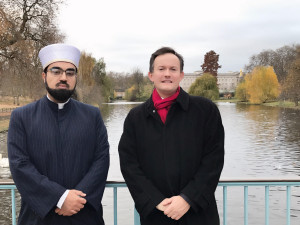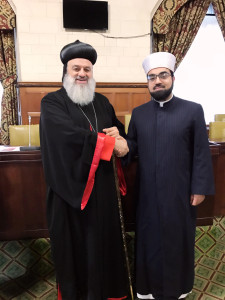Shaykh Dr. Umar Al-Qadri visited the world renowned Al-Azhar University, an ancient seat of Islamic learning, on the special invitation of the Grand Shaykh of Al-Azhar,Shaykh Dr Ahmad Tayyab.
The visit of the University was followed by a meeting between both scholars of the Muslim world in which they discussed contemporary challenges facing the Muslims living in Europe.
They highlighted the importance of unity within the Muslim ranks to fight off these challenges. They agreed that Islamic principles of pluralism, moderation, tolerance and inclusiveness which are also the core themes advocated by Al-Azhar University and the Al-Mustafa Islamic Centre Ireland were relevant to the present-day challenges of the World. The issue of setting up a representative body of Al-Azhar Graduates in Ireland also came under discussion as well as collaboration between Al-Azhar University and the Al-Mustafa Islamic Centre Ireland.
Shaykh-ul-Azhar highlighted the the tasks the Al-Azhar University was carrying out for the solution of intellectual and scholarly problems facing the Muslim world so that people could benefit from Islam teachings and traditions of moderation and tolerance and bring about constructive changes in their collective and individual lives.
Shaykh Umar Al-Qadri thanked Shaykh-ul-Azhar for the invitation to visit the University and invited the Grand Shaykh to visit Ireland in 2018.
Shaykh Umar Al-Qadri was also given a tour of the Al-Azhar Observer by Dr. Kamal Abdel Assalamu Alaikum wrwb. Al-Azhar Observer is a department which consists of 70 scholars that monitor the internet for news and articles about Islam and Muslims in 8 different languages. The purpose of the Observer is to tackle the misconceptions about Islam particularly those misconceptions that are spread by extremists and radicals. It monitors activity of radicals and responds academically to their propaganda. The Observer responds academically to the propaganda spread by Daesh (Dabiq).
Shaykh Umar Al-Qadri also visited the Online Fatwa Department which consists of 100 Mufti’s that issue Fatwa’s online or through the Online Fatwa Helpline.
Shaykh Umar Al-Qadri also met with Shaykh Ahmed Fadeel Qausi, previous Minister of Religious Affairs in Egypt and currently the Chair of World Graduates of Al-Azhar Graduates. Both scholars discussed also challenges the Muslim world is facing particularly the challenge of extremism and islamophobia.
